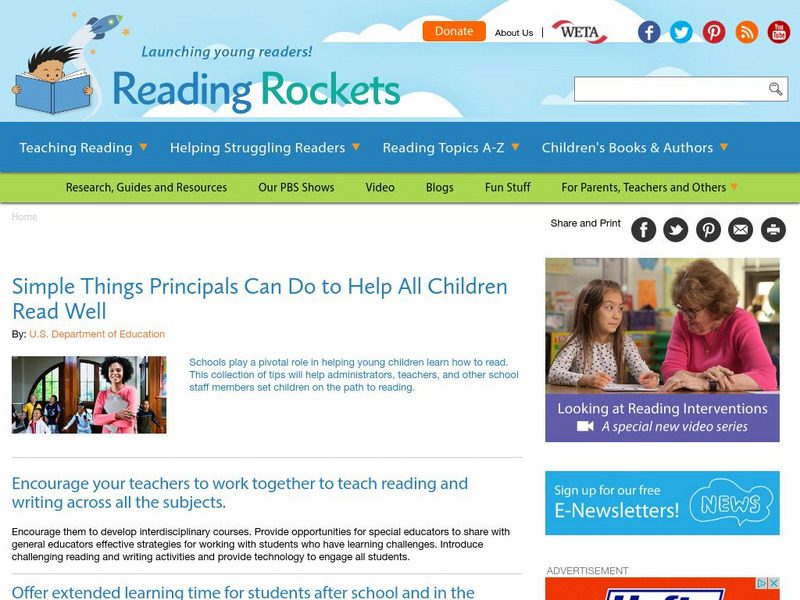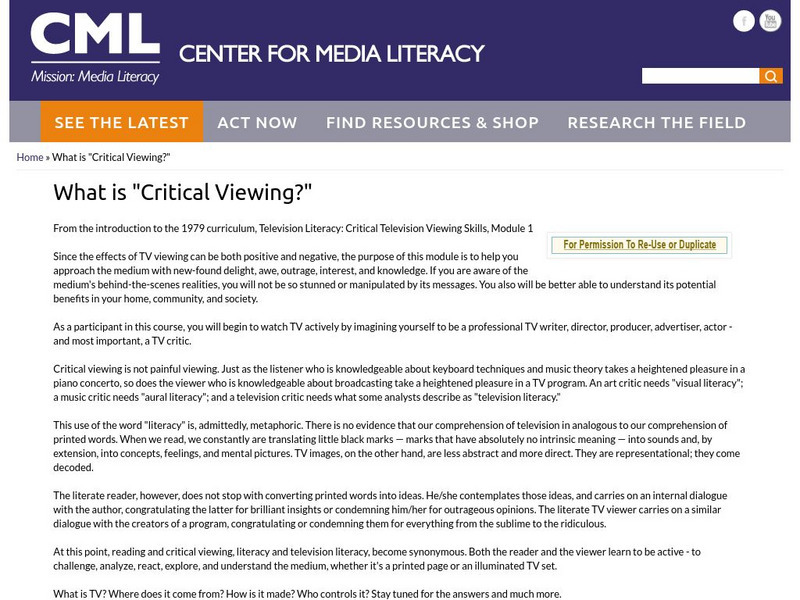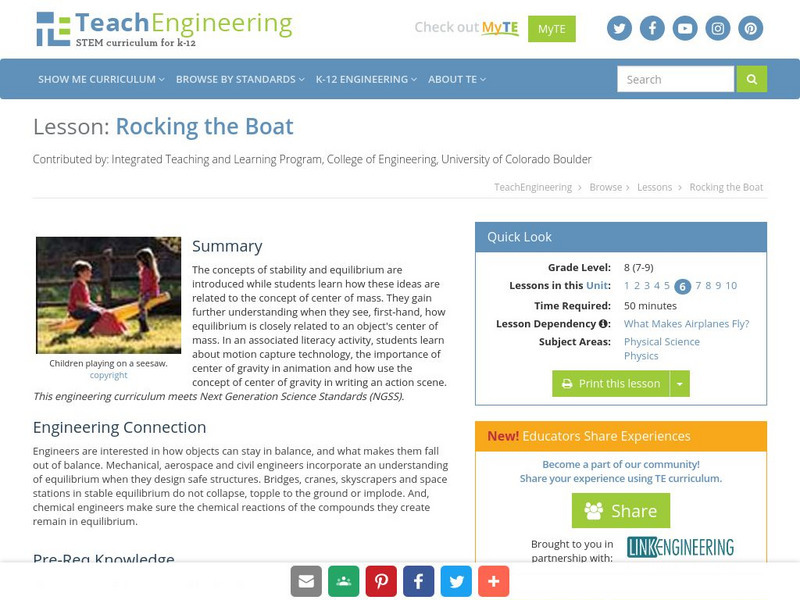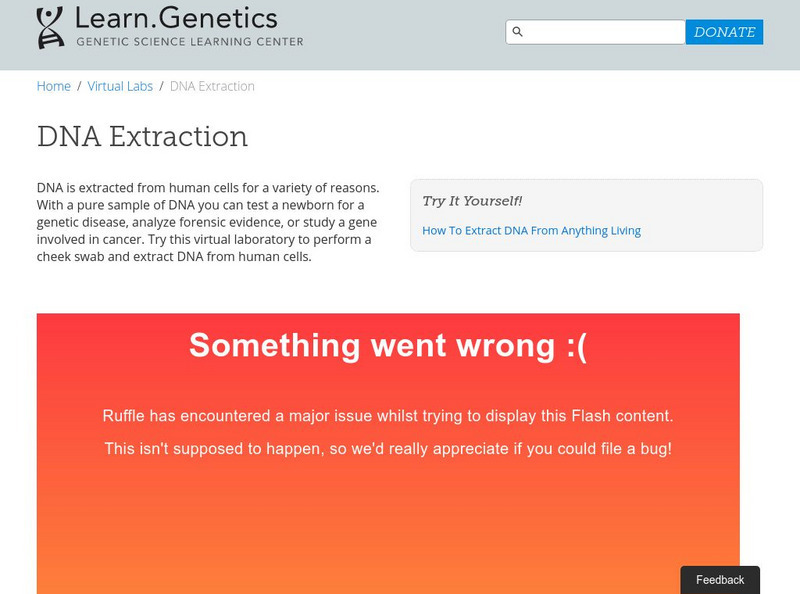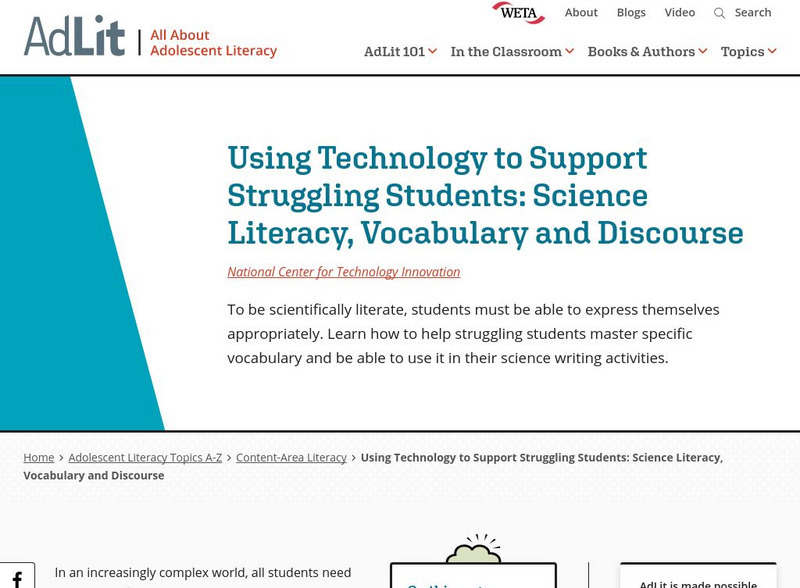Other
Literature Circles: Lesson Plans and More
What are the major roles in literature circles? Check out this site to learn more about the individual roles needed to form a literature circle. Includes links to various reading handouts and lessons.
Wisconsin Response to Intervention Center
Wisconsin Rt I Center: Choral Reading [Pdf]
Classroom teachers will learn about choral reading, an engaging instructional strategy. Teachers will learn how to implement choral reading, understand how to measure progress with choral reading, find research that supports choral...
Wisconsin Response to Intervention Center
Wisconsin Rt I Center: Segmenting [Pdf]
Classroom teachers will learn how to use segmenting phonemes as an instructional strategy. Teachers will learn direct instructional techniques for segmenting phonemes; games and activities are also provided to reinforcement student...
Wisconsin Response to Intervention Center
Wisconsin Rt I Center: Repeated Readings [Pdf]
Classroom teachers will learn about reading repeatedly, an effective instructional strategy. Teachers will learn how to implement repeated readings, understand how to measure progress with repeated readings, and find research that...
Reading Rockets
Reading Rockets: Simple Things Principals Can Do to Help All Children Read Well
Explore a list of simple things that principals can do to help all children learn to read. Come and learn more about the collaboration process with school administrators, teachers and staff.
Wisconsin Response to Intervention Center
Wisconsin Rt I Center: Phoneme Substitution [Pdf]
Classroom teachers will learn how to use phoneme substitution as an instructional strategy. Teachers will learn direct instructional techniques for phoneme substitution. Word picture cards are included to be used with phoneme...
Wisconsin Response to Intervention Center
Wisconsin Rt I Center: Blending [Pdf]
Classroom teachers will learn how to blend words as a classroom modeling strategy. Teachers will learn direct instructional techniques for blending; games and activities are also provided to reinforcement the concept of blending.
Wisconsin Response to Intervention Center
Wisconsin Rt I Center: Phoneme Isolation [Pdf]
Classroom teachers will learn how to use phoneme isolation as an instructional strategy. Teachers will learn direct instructional techniques for phoneme isolation. Word picture cards are included to be used with phoneme isolation tasks...
Wisconsin Response to Intervention Center
Wisconsin Rt I Center: Structural Analysis [Pdf]
Classroom teachers will learn about structural analysis of words, an important instructional strategy. Teachers will learn how to implement structural analysis, understand how to measure progress with structural analysis, find research...
Wisconsin Response to Intervention Center
Wisconsin Rt I Center: Semantic Maps for Morphological Analysis [Pdf]
Classroom teachers will learn about semantic maps to break words into meaningful word parts, an engaging instructional strategy tool. Teachers will learn how to implement semantic maps, understand how to measure progress with semantic...
Wisconsin Response to Intervention Center
Wisconsin Rt I Center: Story Writing Frames [Pdf]
Teachers will learn how to use story writing frames with their students. Teachers will learn how to implement story frames; measure progress with story frames; and find research to support using story frames. A reproducible story frame...
Other
Center for Media Literacy: What Is "Critical" Viewing?
Understand the term "critical viewing" as it relates to visual literacy. Learn how to assess the media around you in order to become more knowledgeable and not easily manipulated by what you see.
Other
Center for Media Literacy: What Is "Critical" Viewing?
Understand the term "critical viewing" as it relates to visual literacy. Learn how to assess the media around you in order to become more knowledgeable and not easily manipulated by what you see.
Other
Center for Media Literacy: Best Practices
Best Practices encompasses the best of media literacy education - the instructional tools and techniques that teachers use to organize their classes, create engaging activities and accomplish their learning objectives. Explore this...
PBS
Pbs Learning Media: Centripetal Force: Roller Coaster Loops
This video segment explains centripetal force and illustrates how roller coasters rely on it to give you a thrilling ride. Includes background reading material and discussion questions. [4:40]
Polk Brothers Foundation Center for Urban Education at DePaul University
Depaul University: Center for Urban Education: Guide Nonfiction Reading
This site contains 17 nonfiction articles that are appropriate for students with a 6th grade reading level, as measured by the Fry Formula. Questions for each passage are provided. These graphic organizers are copyrighted and may be used...
AdLit
Ad lit.org: Guidelines for Teaching Students to Read and Write Well:six Features
Building on their research in secondary classrooms, the Center on English Learning and Achievement has developed guidelines that describe six essential features of effective literacy instruction and how teachers can implement them.
TeachEngineering
Teach Engineering: Rocking the Boat
The concepts of stability and equilibrium are introduced while students learn how these ideas are related to the concept of center of mass. They gain further understanding when they see, first-hand, how equilibrium is closely related to...
TeachEngineering
Teach Engineering: Wow! That Captures It!
Students learn how motion capture (mo-cap) technology enables computer animators to create realistic effects. They learn the importance of center of gravity in animation and how to use the concept of center of gravity in writing an...
PBS
Pbs Learning Media: Building Video Literacy: Storyboarding
In this activity developed by EDC's Center for Children and Technology, students explore the relationship between types of shots and storytelling.
TeachEngineering
Teach Engineering: Mechanics Mania
Through ten lessons and numerous activities, students explore the natural universal rules engineers and physicists use to understand how things move and stay still. Together, these rules are called "mechanics." The study of mechanics is...
North Central Regional Educational Laboratory
Assessing Young Children's Progress Appropriately
This article focuses on the critical issue of how to assess your young child's progress appropriately. Students, teachers and parents will benefit from this informative article. The article features contact information to learn more...
University of Utah
University of Utah: Learn Genetics: How to Extract Dna From Anything Living
Four steps is all it takes to get DNA out of a variety of living things. The requirements include a blender, meat tenderizer, isopropyl alcohol, and a test tube. Sources of DNA include but are not limited to split peas, strawberries,...
AdLit
Ad lit.org: Using Technology to Support Struggling Students: Vocabulary
To be scientifically literate, students must be able to express themselves appropriately. Learn how to help struggling students master specific vocabulary and be able to use it in their science writing activities.



